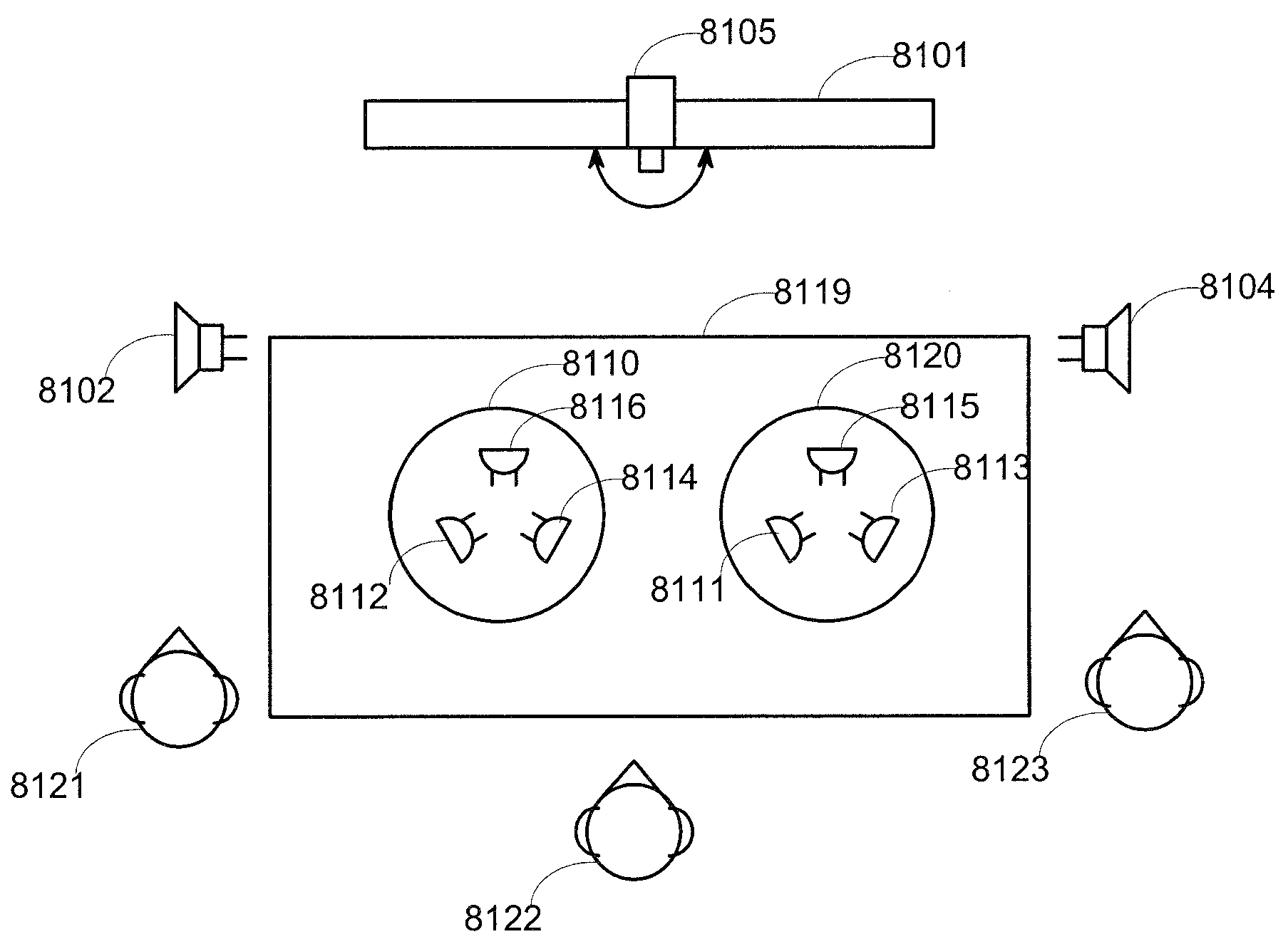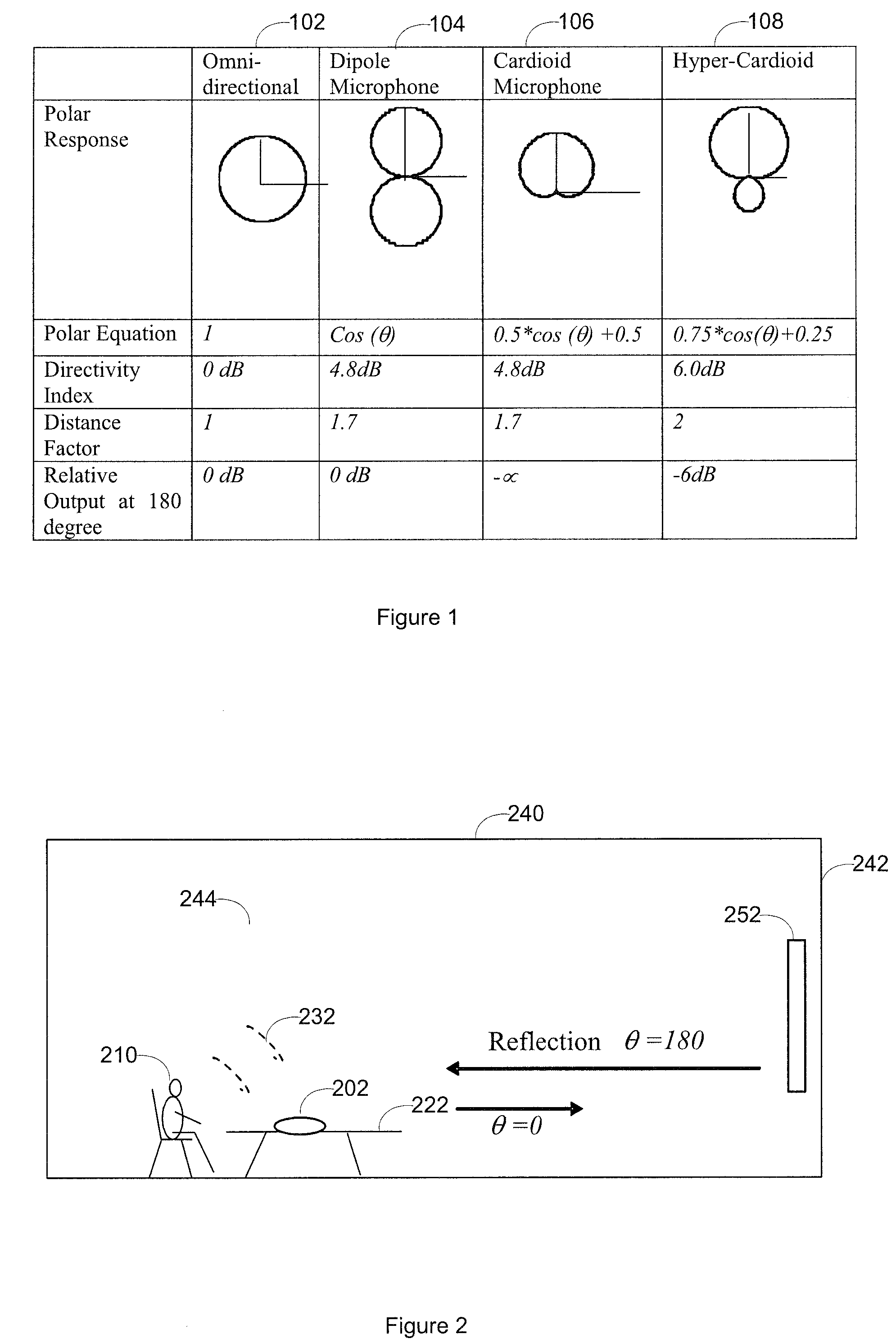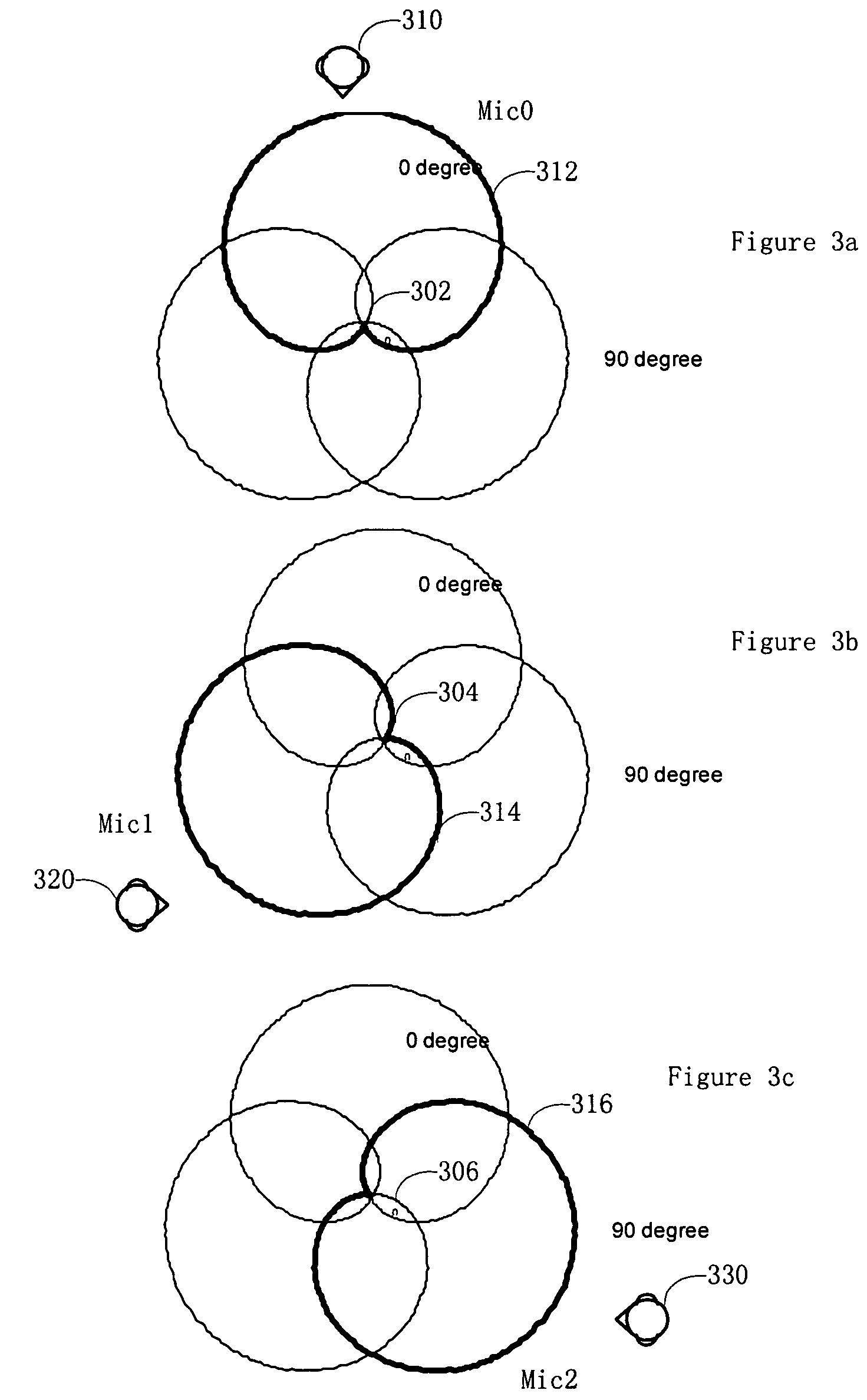Ceiling microphone assembly
a microphone and floor technology, applied in the direction of electrical transducers, electrical transducers, transducer types, etc., can solve the problems of poor signal/noise ratio, cluttered room, and poor quality of audio or video conferencing applications, and achieve the best signal/noise ratio and the capacity of microphones can grow.
- Summary
- Abstract
- Description
- Claims
- Application Information
AI Technical Summary
Benefits of technology
Problems solved by technology
Method used
Image
Examples
Embodiment Construction
[0022]FIG. 2 shows a typical conference room arrangement 244. A conference participant 210 sits at a conference table 222, facing a video monitor 252 at a side wall 242. A microphone 202 (or several microphone elements in a speakerphone such as a Polycom SoundStation VTX-1000 speakerphone) may be placed on the conference table 222. Speech 232 may propagate within the conference room and may be reflected by walls, e.g. 242, and ceiling 240. The reflected sound waves, which may also be referred to as room reverberation, are typically undesired and should be rejected by the microphone if possible. It can be done when a cardioid microphone is used. The cardioid microphone only accepts sound waves in one direction. The reflected sound waves, which are in the opposite direction, are rejected. This way, the cardioid microphone can reject the unwanted first-stage reverberations from the room, leading to an improvement of the direct to reverb ratio.
[0023]Since a single cardioid microphone el...
PUM
 Login to View More
Login to View More Abstract
Description
Claims
Application Information
 Login to View More
Login to View More - R&D
- Intellectual Property
- Life Sciences
- Materials
- Tech Scout
- Unparalleled Data Quality
- Higher Quality Content
- 60% Fewer Hallucinations
Browse by: Latest US Patents, China's latest patents, Technical Efficacy Thesaurus, Application Domain, Technology Topic, Popular Technical Reports.
© 2025 PatSnap. All rights reserved.Legal|Privacy policy|Modern Slavery Act Transparency Statement|Sitemap|About US| Contact US: help@patsnap.com



